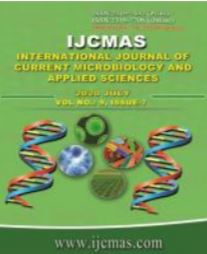


 National Academy of Agricultural Sciences (NAAS)
National Academy of Agricultural Sciences (NAAS)

|
PRINT ISSN : 2319-7692
Online ISSN : 2319-7706 Issues : 12 per year Publisher : Excellent Publishers Email : editorijcmas@gmail.com / submit@ijcmas.com Editor-in-chief: Dr.M.Prakash Index Copernicus ICV 2018: 95.39 NAAS RATING 2020: 5.38 |
With urbanization being experienced in the word, there is significant rise in the amount of solid waste generated at the households’ leading to insatiable consequence to the human health and the environment. There is now an acknowledgement on the impacts of poor solid waste management (SWM) practices on the natural and human environment. This work aimed to study the environmental and public health impacts of solid waste management taking a case study of Wadajir district specifically in the Benadir region of Somalia, investigating the sources, types and impacts of solid waste management practices, examine and assess the disposal options and their impacts on public health and the environment. The study collected data from a systematic random sample of 30 households selected from the study area using questionnaires. The research used both qualitative and quantitative methods for data analysis using SPSS version 25 on which various analytical operations were performed, including generation of percentages and descriptive statistics. It was found that the environment in the study area has been highly polluted with solid wastes from poor households handling practices. The solid waste generated in the household consisted of organic food materials (68.6%), plastics (28.6%) and polythene bags (2.9%). These resulted in health problems such as diseases (cholera, dysentery, typhoid, malaria and dengue fever) and environmental degradation. Burning and dumpsite were selected as the preferred methods of disposal because they are easy to use, convenient and cheap. With regard to waste collection, private firms and youth groups have been helping the community, collecting waste at least one and twice a week at an affordable fee. The study results support the test hypothesis that household waste type influences waste management practices. The study concluded that households and commercial organizations should have storage receptacles; demarcate land for use as dumpsites while engaging community participation in promoting waste management. The study recommended policies and by-laws relating to waste collection and disposal in the region, reducing waste management through waste management value chain and establishment of properly constructed landfill site at a suitable location in Benadir region.
 |
 |
 |
 |
 |